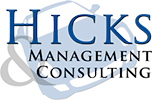
Selling a car dealership is not a decision you make overnight. For many owners, it represents decades of hard work, community presence, and financial investment. Whether you’re ready to retire, pursue a new opportunity, or simply capitalize on your dealership’s success, planning a proper exit strategy is critical.
If you’ve been wondering how to sell a car dealership, the truth is that working with a specialized auto dealership broker is the key to making the process efficient, confidential, and profitable. Here’s a step-by-step look at how dealership owners successfully sell their businesses — and how a broker helps at every stage.
Step 1: Define Your Investment Goals
Every sale begins with understanding your personal and financial goals. Consider:
- Do you want to exit quickly, or maximize your dealership’s value over time?
- Will you sell the real estate along with the dealership, or retain ownership and lease it back?
- Are you open to staying on during a transition period?
- Do you prefer to sell to another auto group, an individual buyer, or a private investor?
An experienced dealership broker will help you clarify your exit objectives and design a strategy that fits your desired outcome.
Step 2: Determine the Value of Your Dealership
Knowing what your dealership is worth is one of the most important parts of selling. Value is based on more than just sales volume — buyers look at profitability, market share, and brand strength.
A dealership broker provides a comprehensive valuation by analyzing:
- Dealership financial statements and cash flow
- Parts, service, and F&I performance
- Vehicle inventory and real estate holdings
- Franchise agreements and manufacturer relationships
- Recent comparable dealership sales in your region
This valuation ensures you go to market with a fair asking price and helps position your dealership as a strong investment.
Step 3: Secure Financing and Understand Valuation
Before you list your dealership, you’ll need to organize detailed information for buyers to review. This includes:
- Profit and loss statements from the past 3–5 years
- Current balance sheets and tax filings
- Inventory reports (new, used, and wholesale)
- Service and parts performance data
- Lease agreements and property details
Your broker will guide you in gathering and presenting this information in a way that appeals to serious, qualified buyers.
Step 4: Confidentially Market the Dealership
Unlike selling a home or small business, you can’t simply advertise a dealership for sale. Public knowledge of a potential sale can unsettle employees, damage customer confidence, and strain manufacturer relationships.
That’s why dealership brokers use confidential marketing strategies, such as:
- Creating anonymous “blind profiles” to attract buyers without revealing your identity
- Tapping into a network of investors and auto groups already interested in acquisitions
- Ensuring all buyers sign NDAs before accessing sensitive financial data
This approach protects your business during the sale and avoids disruption to daily operations.
Step 5: Qualify and Vet Buyers
Not every person who expresses interest is a serious candidate. A dealership broker will:
- Screen buyers for financial strength and operational capability
- Ensure potential buyers meet manufacturer approval requirements
- Eliminate unqualified leads that waste your time
This step is crucial to ensure that only serious investors or experienced operators are considered.
Step 6: Negotiate the Deal
Once a qualified buyer emerges, negotiations begin. This stage covers much more than just price. Brokers assist in negotiating:
- The structure of the sale (asset purchase vs. stock purchase)
- Real estate transactions or lease agreements
- Non-compete clauses and employee retention
- Transition support from the seller to the buyer
- Manufacturer approval conditions
A dealership broker acts as your advocate, ensuring you get favorable terms while protecting your long-term interests.
Step 7: Oversee Due Diligence
After initial terms are agreed upon, the buyer will want to conduct due diligence — a deep review of your dealership’s financial and operational records.
Your broker will coordinate this process, working with your legal and accounting teams to provide:
- Verified financial reports and tax documents
- Inventory and parts audits
- Compliance and licensing checks
- Manufacturer statement reviews
Managing due diligence effectively prevents delays and builds buyer confidence.
Step 8: Finalize and Close the Sale
The last stage involves signing agreements and transferring ownership. With a broker guiding the process, you can expect assistance with:
- Drafting and reviewing the purchase agreement
- Manufacturer approval and franchise transfer
- Completing regulatory filings
- Coordinating real estate closings
- Facilitating a smooth transition of operations
When everything is complete, you can move forward confidently into the next chapter of your life.
Why Work With a Dealership Broker to Sell?
Selling a car dealership on your own is extremely difficult. Brokers provide the expertise, connections, and negotiation skills to ensure your exit is successful. Their services include:
- Accurate dealership valuations
- Confidential marketing to qualified buyers
- Buyer screening and manufacturer approval guidance
- Deal structuring and negotiation support
- Due diligence coordination
- Transaction management through closing
With a broker, you can focus on running your dealership while they handle the complex process of selling it.
Final Thoughts: Your Exit Strategy, Done Right
If you’re asking yourself, “How to sell a car dealership?”, the answer starts with choosing the right partner. A dealership broker ensures your sale is confidential, profitable, and structured to meet your goals. Give us a call at Hicks Management and Consulting. As one of the top auto dealership brokers in the country, we can guide you through every step of the process.
When you’re ready to begin your exit strategy, our brokerage team is here to help. We connect dealership owners with qualified buyers and manage every step of the sale process so you can move on with confidence.





